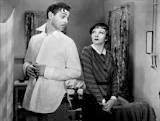Films are another form of storytelling. Recently I watched Clark Gable and Claudette Colbert in It Happened One Night.
The 1934 story's premise is: A spoiled socialite marries a fortune hunter whom her doting father dislikes. When her father holds her on his yacht in Miami, hoping she'll reconsider, she escapes and boards a bus for New York City. A passenger, gritty newspaper man Clark Gable, recognizes her and sees an opportunity. He offers to help her in exchange for an exclusive story.
As writers, we teach ourselves to write realistic characters, but there's obviously a market for extremes--the spunky heiress falls for the handsome, broke writer. Depression-weary audiences loved Frank Capra's story, and it set the template for romantic comedies.
So what types of characters / stories are highly marketable today? What can turn our well-crafted stories into best-sellers?
Billionaire orphans with erotic dungeons sell. Saving the galaxy from cruel tyrants sells. A socialite, blind to her husband's theft of her wealth, is reduced to selling shoes to her former friends sells. Teenage vampires sell.
What do these blockbusters have in common? To my mind, they have implausible plots. Yet is this what audiences crave? To escape into exotic settings, lose themselves in outrageous plots, and temporarily become larger than life characters.
Cravings can have real life effects: In It Happened One Night," Gable did not wear an undershirt in a chaste undressing scene because removing the undershirt on camera would muss his hair. Sales of underwear plummeted for years.
Potato chips and candy have been revved up with flavorings and seasonings. FDA research shows that these additives, while legal, are insidiously addictive. Feeding highly seasoned snacks to young children hooks their brains into craving more. Healthy foods don't taste so good anymore. This, the FDA warns, leads to childhood obesity and diabetes.
Consumer craving for jazzed-up plots and settings is just as plausible. Are consumers hooked on edgy?



3 comments:
I work with students all day long. It's the same in the classroom. Everything must be "jazzed up" to engage their interest. Hmm--What happened to engaging their minds. Same with books. I love reading love stories and intrigue, where you can't predict what's going to happen just by reading the blurb on the back. So do the questions is--are writing to sell? You bet. The great American Novel isn't going to be written by most of us. We want to write for fun, to entertain and to sell.
Interesting question, Ana. I've always loved fantasy--before it was popular. I got hooked on paranormal in fifth grade watching 'Dark Shadows'. I suppose you could call that edgy. I like books from many genres, but fantasy and paranormal romance is what I enjoy reading and writing. :)
I read blog posts about discouraged authors who write well but don't sell. Is the breakout author just lucky?
Post a Comment